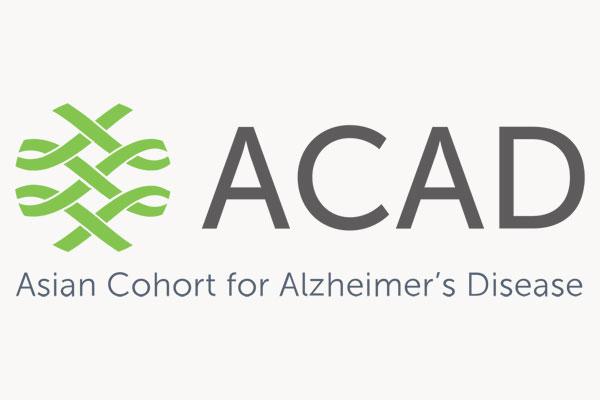
A team of University of California, San Francisco (UCSF) and Stanford researchers and community partners across the U.S. and Canada has been awarded a two-year, $4.8-million pilot grant by the National Institute on Aging (NIA) for studies of the genetics of Alzheimer’s disease in people of Asian heritage.
Alzheimer’s disease, the most common cause of dementia among seniors, affects about 6.5 million people in the United States and Canada combined. Its prevalence is expected to increase significantly in the coming decades as these countries’ populations age. The cause or causes of AD are still unclear, and success testing therapeutic targets to slow or stop the disease process has been elusive in the last two decades despite many clinical trials. Scientists continue to seek clues to the disease’s origin in large genetic studies as well as studies of lifestyle and other factors. But while susceptibility to diseases may differ by ethnicity, and indeed small genetic studies suggest that Asians may have a distinct set of genetic risk factors for Alzheimer’s, studies of this disease (and many other complex diseases) so far have recruited mostly populations of European Ancestry.
The new project, which is called the Asian Cohort of Alzheimer’s Disease (ACAD), is led by four Multiple Principle Investigators (MPIs), Li-San Wang of University of Pennsylvania, Helena Chui of University of Southern California, Van Ta Park of the UCSF School of Nursing, and Gyungah Jun of Boston University.
The key goal of ACAD is to enroll a population of at least 5,000 participants of Asian Ancestry in the United States and Canada—a large enough sample to enable the discovery of new gene variants related to AD risk. ACAD will be recruiting participants who are 60 years and older who have evidence of cognitive impairment, as well as age- and sex-matched controls who have no cognitive complaints. The researchers will compare the DNA, medical histories, and lifestyle factors of these two groups for clues to risks for dementia and will track participants’ memory and other cognitive test scores.
In the San Francisco Bay Area, the ACAD study will be conducted in collaborations with multiple researchers and expert clinicians across academic institutions and community partners. UCSF investigators include Van Ta Park, PhD, MPH, (MPI) and Yoonmee Joo, PhD, ANP, RN, at the School of Nursing; Howie Rosen, MD, Serggio Lanata, Boon Lead Tee, MD, MS, and Jennifer Yokoyama, PhD, at the UCSF Memory and Aging Center; and Victor Henderson, MD, MS, and Steven Chao, MD, at the Stanford Alzheimer’s Disease Research Center. Across the U.S. and Canada, other participating institutions include University of British Columbia, University of California San Diego, Columbia University, Englewood Health, Indiana University, University of Massachusetts Boston, University of Southern California, Southern California Eye Institute, University of Toronto, and University of Washington.
Park has a distinguished track record in outreach, education and research in the Asian American and Pacific Islander communities. She is the principle investigator of Collaborative Approach for Asian Americans & Pacific Islanders Research and Education (CARE), another NIA-funded study, to establish the first research registry specifically for Asian Americans and Pacific Islanders (AAPI). Park is a public health researcher who has been engaged in community-based research for about 20 years.
Park said, “According to the Alzheimer’s Association, one in three seniors dies with Alzheimer's or another dementia. However, Alzheimer’s research with Asian Americans are limited, which is concerning because Asians are the fastest growing racial population in the US. ACAD is timely, necessary and relevant. ACAD is a collaboration among researchers and community partners who are dedicated to improving our understanding of the genetics and non-genetics risk factors for Alzheimer’s disease among Asian Americans and Asian Canadians. It is our sincere hope that what we learn from ACAD will inform better care and treatment for these populations.”
(Posted: Jan. 15, 2021)
